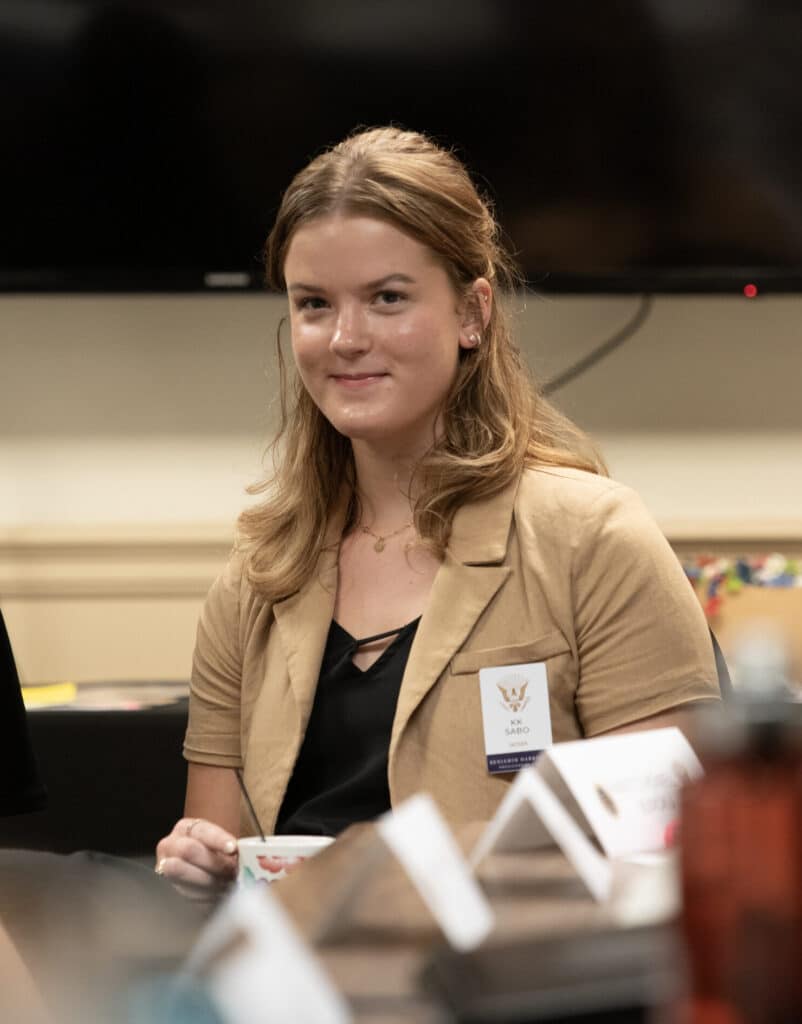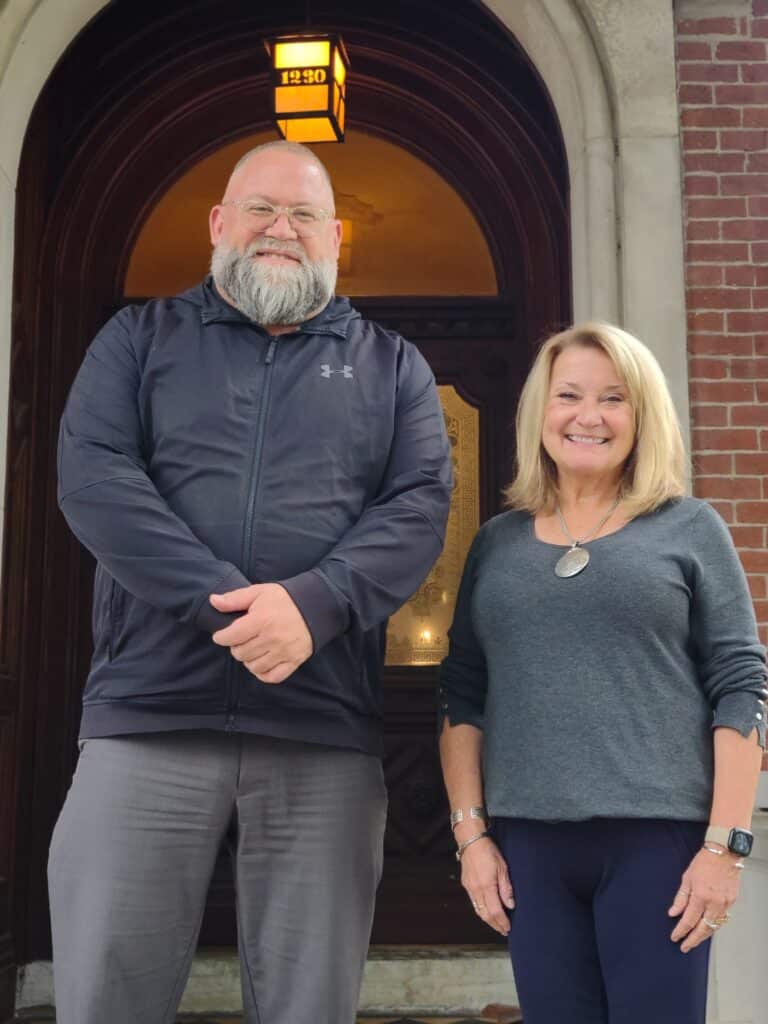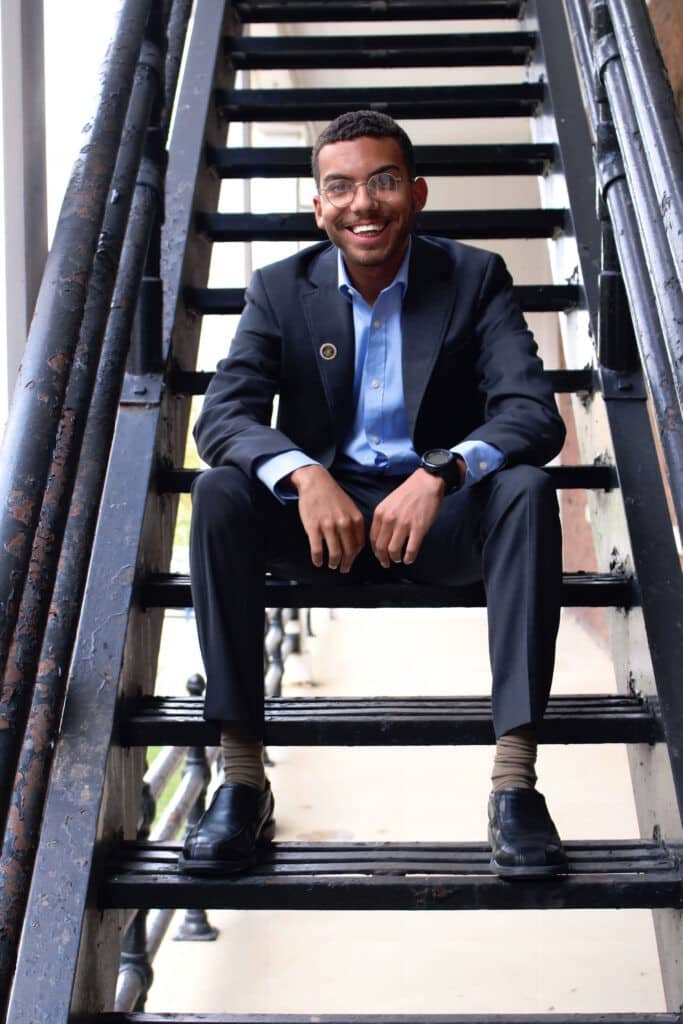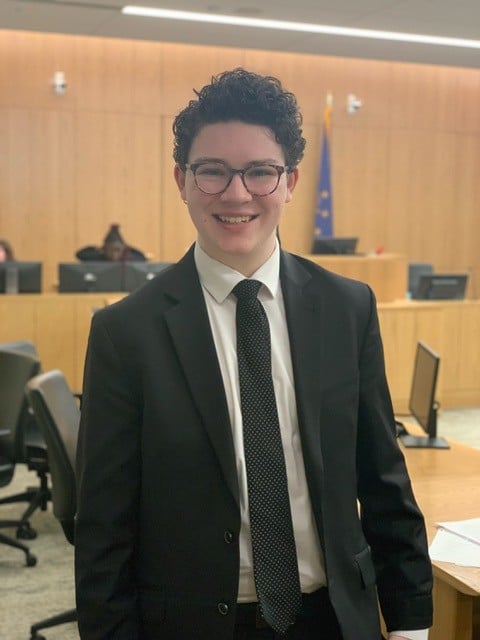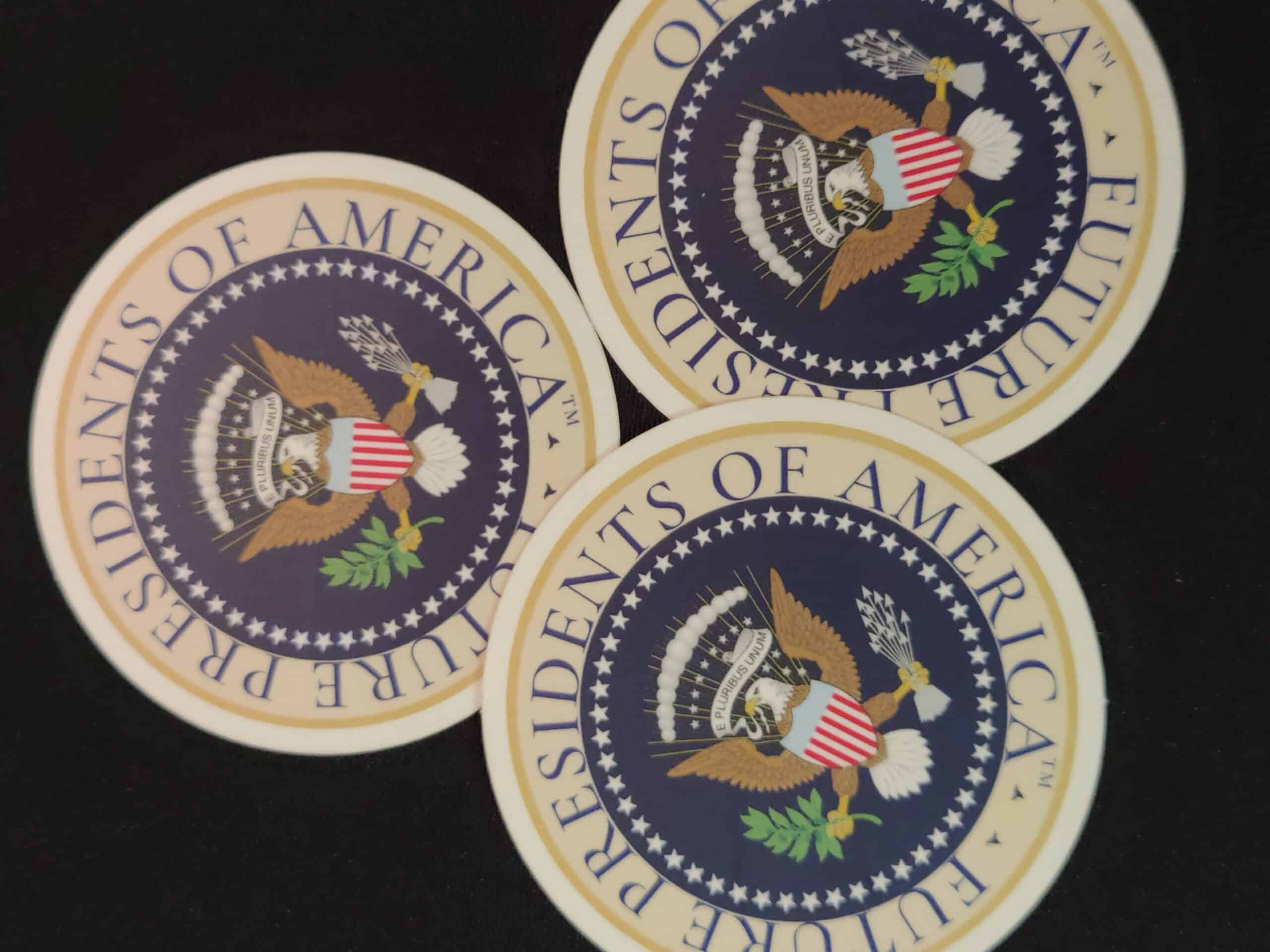
By Marilyn Odendahl
The Indiana Citizen
October 27, 2023
Kathryn “KK” Sabo, 16, was not always interested in hearing the other side.
The junior at Brebeuf Jesuit Preparatory School in Indianapolis developed an appetite for politics as a middle school student while taking part in the “We the People” civics program. Also, she continues to hone her debate skills with her parents’ help, once arguing over dress codes with her father for three hours.
Not surprisingly, Sabo seized the opportunity to participate in the annual Future Presidents of America summer camp at the Benjamin Harrison Presidential Site in Indianapolis the summer of 2021. Being surrounded by students from other schools who had different perspectives and digging into a curriculum that introduced her to community leaders and engaged her in a variety of activities, she said forced her to think before she spoke.
“I was very, very partisan,” Sabo said, describing herself before the camp. “I was like, ‘I believe this, this and this; there’s no other way. If you don’t believe this you’re wrong.’” The views of her FPA classmates and the stories from the speakers “forced me to take a step back and really realize … that’s not how you can accomplish things.”
Since the summer of 2015, the Future Presidents program has welcomed about 20 students, ages 13 to 16, for a weeklong exploration of civics, history and leadership. The students learn about governance and civility through lessons on local history and the Constitution and are also taught public speaking skills and proper table etiquette. Also, each day, leaders in business and government visit to share their personal stories.
The Harrison site’s Roger Hardig, vice president of education, and Jennifer Hodge, Gracia Johnson Floyd Presidential Fellow, enlist the speakers, develop the curriculum and nurture the students. Both have experience in teaching and have long given tours to elementary school children but, Hardig explained, they saw young teens mired in a “desert of opportunity.”
As the country recognizes the importance of an informed and engaged populous on National Civics Day on Oct. 27, the Future Presidents program is teaching its students how to be active citizens.
Hardig and Hodge have designed the Future Presidents program to boost the students’ knowledge of social studies and civic engagement with a healthy dose of youth leadership skills. It teaches them how to make a difference in whatever fields they choose, regardless of whether they want to one day sit in the Oval Office.
“I’ve always thought about it as kind of like ‘applied civics,’” Hardig said.
Students are selected either by their school district superintendents or through an application process, where they have to answer questions like “If you were president, what issue would you champion?” Donors have underwritten the entire program, so those students who are accepted attend for free.
Hodge said she enjoys watching the students transform during the program from being shy and tenuous on the first morning to becoming friends and “realizing that they’re important.”
“They have a different attitude about themselves,” Hodge said. “I feel like they have more confidence, better public speaking skills. They have an opportunity to feel comfortable with standing up and debating … and they learn to respect each other, whatever their views are. … They realize that we can still talk, we can still like each other, we can still get things done.”
Learning from local leaders
Kye Benford, a 17-year-old senior at Lawrence North High School, enrolled in the program in the summer of 2022.
He had been planning on a career as public policy maker or lawmaker in Congress or as an official in the White House, but a walking tour through the historic spots in downtown Indianapolis and a talk by the deputy mayor of the city caused him to consider all he could do in local government.
“I got a lot of perspective, especially for local politics and learning how it works and functions,” Benford said. “I learned a little bit more about the importance of not only the national government but at the local level how important (municipal governments are) and how much they actually do for citizens.”
Central to the program are the speakers. Company CEOs, sitting senators, mayors, state legislators and others tell the students about their childhoods and how they were able to reach their own successes. Hodge noted many emphasize an important lesson – that the journey to leadership positions is not always a straight line and they had to pick themselves up when they stumbled.
The students are encouraged to ask questions and, after the talk, introduce themselves to the speakers, exchange email addresses and network. Then the activities expand on the speakers’ stories by teaching the students the skills to converse and interact with others in a professional manner.
Hardig and Hodge said the Future Presidents program is “not just dusty books or another classroom setting.”
Alumni of the program have gone on to become Wells Scholars at Indiana University and attend other top colleges, such as Wabash College, the University of Notre Dame and Penn State. Some have also studied abroad, including one who worked a summer at The Hague.
Still, Hardig said he sometimes has doubts, wondering if he is reaching anybody or if the program is making a difference. That is when he reaches for the speech given by Future President alumnus Jayna Ndiaye at the 2023 ceremony celebrating the end of the Benjamin Harrison Presidential Site’s capital campaign.
The program, Ndiaye told the dignitaries and donors, helped her realize her own importance.
“I had a voice,” Ndiaye said. “Finally, after the world spent centuries taking the voice away from young Black girls like me, I found it here.”
Critical thinking and creative writing
The Future Presidents program has caught the attention of other presidential sites. Similar programs have been implemented at Andrew Jackson’s Hermitage, home of the 7th U.S. President in Nashville, Tennessee, and at the Abraham Lincoln Presidential Library and Museum in Springfield, Illinois.
In addition, students from other states, including Texas and Ohio, have traveled to the Harrison Presidential Site to attend the program. One student from California rented an Airbnb in downtown Indianapolis with his mom and hopped on a Bird scooter to get to the Harrison home every day.
During the week, students take field trips and delve into different topics to develop their critical thinking skills.
Andrea Neal, teacher at St. Richard’s Episcopal School and former reporter for the United Press International, leads two lessons delving into the rights and responsibilities in Article Two of the Constitution, which establishes the powers of the president and described the election and impeachment processes.
Benford remembered studying a court case during the program with the instructor asking him and his classmates how they would decide the issue. Then they were shown the judge’s ruling, which, he said, reached a different conclusion but helped them to get a better “understanding of different perspectives.”
Also during the camp, the students are taken to Crown Hill Cemetery to visit Harrison’s gravesite and the graves of soldiers who died in the Civil War. They then are asked to reflect on the experience through a creative-writing assignment.
This past summer, Hardig gave a fictional account of a battle from the Civil War and asked the students to write a letter notifying the family members that their son, a soldier, was killed. The students were allowed to choose either a Confederate or Union perspective.
Robbie Rodenbush, 16, still remembers the trip to Crown Hill when he took part in the Future Presidents program in the summer of 2022.
The prior three years had been “really rough,” Rodenbush said, as he navigated remote school because of COVID and lost both his grandmothers. But, he said, going to the Harrison Presidential Site had given him the opportunity to make friends and learn life lessons from the speakers. As he recounted all he did during the program, he remained most taken by the trip to the cemetery and seeing the rows upon rows of soldiers’ tombstones that seemed to stretch for miles.
Rodenbush and his classmates were asked to each write a poem about their experience at Crown Hill. He recalled the impact of everyone sharing their poems and reflecting on the emotions they felt.
“I learned I don’t always need to take everything so seriously,” Rodenbush said. “It just made me realize … some things are more important than others. Sitting there, all the things I’m worried about aren’t important. There’re bigger things going on in my life.”
Dwight Adams, a freelance editor and writer based in Indianapolis, edited this article. He is a former content editor, copy editor and digital producer at The Indianapolis Star and IndyStar.com, and worked as a planner for other newspapers, including the Louisville Courier Journal.
